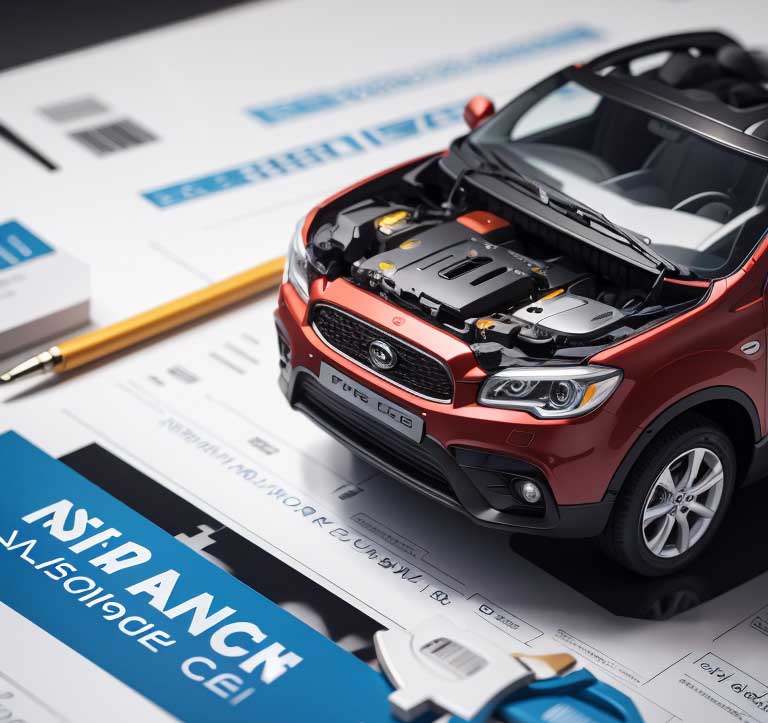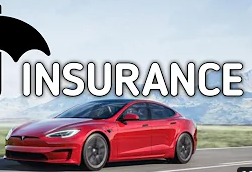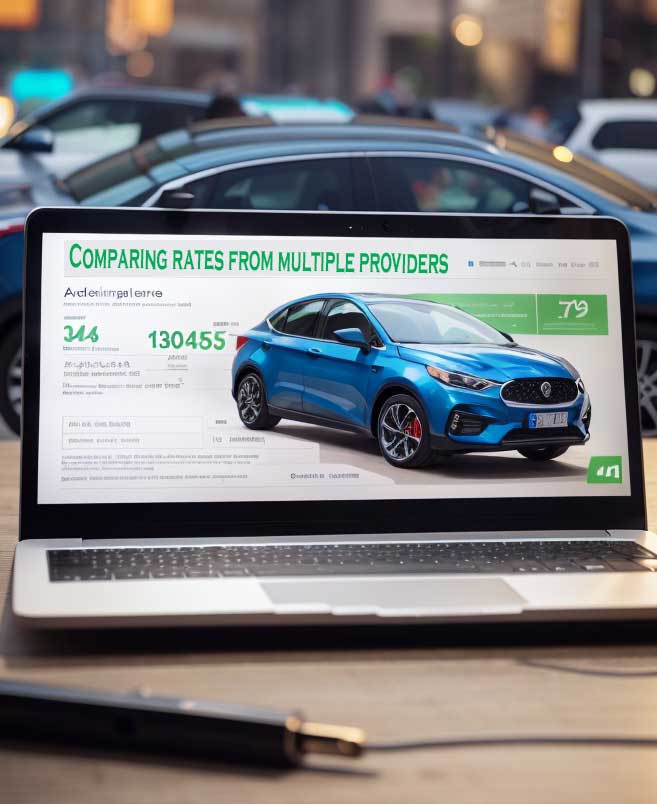Car Insurance Estimate
Car Insurance Estimate
Are you curious about what kind of costs are associated with car insurance? Did you know that the cost of your vehicle is one factor that affects how much insurance coverage will cost? Estimating car insurance costs can be tricky but it doesn’t have to be.
Get ready to learn how to estimate your own customized auto coverage today!
Key Takeaways
- Different factors affect car insurance costs, including the vehicle age, type of car, driving record and more.
- It is important to compare rates from different companies to ensure you’re getting the most affordable price for your needs.
- Discounts are available that can help reduce premiums, such as good grades discounts and policy bundling options.
- Understand coverage types to select one that fits both your lifestyle and budget needs while providing necessary protection in case of an accident or injury.

Understanding Car Insurance Costs
It is important to learn about the factors that can affect car insurance costs and how much coverage you need before estimating or purchasing a policy.
Factors that affect the cost of car insurance
Many variables can impact car insurance rates, including but not limited to:
- State regulations
- Vehicle age
- Car manufacturer and model
- Traffic violations
- Annual mileage
- Credit score
- Geographic location
- Weather conditions
- Claim history
- Car theft rates

Instant Quotes
Get up to 10 car insurance quotes in minutes

Type of Coverage
Car, property, liability and worker compensation insurance

Car Insurance Basic
It elit tellus, luctus nec ullamcorper mattis, pulvinar dapibus leo.

How Car Insurance Work
factors impacting payouts and general tips
How much car insurance you need
Car owners in the US must have liability insurance to legally drive a vehicle, and spending more on coverage is recommended since it will provide better protection against lost assets and medical expenses.
When trying to determine how much coverage is needed there are several factors that should be considered, such as legal requirements, financial situation, driving history, and type of car owned.
Liability insurance covers third-party costs resulting from an accident or injury caused by you while operating your vehicle – most states require drivers to carry at least $500 000 worth of coverage for bodily injury per person injured and $100 000 minimum limits for property damage.
Thus it’s important to think beyond what the law requires when shopping for auto insurance: review your policy annually to make sure you’re covered adequately in case of an accident.
Personal automobile policies may also cover additional items like uninsured/underinsured motorist protection, collision & comprehensive coverage – all of which can help avoid larger out-of-pocket losses in the event of a claim or lawsuit due to no fault of yours.
Why certain cars cost more to insure
Understanding car insurance costs can be overwhelming, but one important factor to consider is why certain cars may cost more for auto insurance than others. Insurance companies assess a range of data points, such as the make and model of your car, its value, the likelihood of theft and difficulty of repairs, when determining the rates you’ll pay.
For instance, if you’re driving an expensive new sports car then insurers will typically charge higher premiums due to its higher value. Or if you own a classic luxury vehicle racecar that’s rare or impossible to replace in case it’s stolen then you can expect high insurance rates too.
In addition some hybrids are perceived as less safe on the road and require specialized repairs which makes them costly to insure – often more so than traditional gas-powered engines with similar performance specs.
Estimating Car Insurance Costs
There are numerous ways to estimate your car insurance costs, including using online calculators and obtaining estimates from various companies.
Using online calculators
Online calculators are a useful tool for estimating car insurance costs. They provide personalized cost estimates and can compare rates from different providers, making it easier to find an affordable policy that meets your needs.
Popular sources with car insurance calculators include Forbes Advisor, MoneyGeek, Insurify, NerdWallet, Policygenius, State Farm and Progressive. Certain calculators may even allow you to view estimated costs without having to provide personal information upfront.
Additionally, vehicle make and model has an impact on the amount of coverage needed as well as overall pricing – factors that online calculators can take into account when providing user-specific rate estimates.
Getting car insurance estimates from various companies is crucial in finding the most affordable and suitable coverage for your needs.
Getting estimates
from multiple companies
How to Get Multiple Estimates
1. Different insurance companies use distinct formulas to determine rates, so prices for the same coverage can vary significantly.
2. By getting multiple estimates, you can compare prices and coverage options, helping identify the best deal.
3. Comparing quotes from various insurance companies can assist in understanding the range of potential costs in the market, giving you a better idea of what's reasonable.
4. Comparing rates can potentially save you money as you can find the most affordable coverage for your specific needs.
5. Use online tools and calculators for quick and easy quotes from a range of insurance companies.
6. Contact insurance companies directly to get a more personalized estimate, considering your insurance history and specific needs.
7. Consult with an insurance broker, who can provide quotes from multiple insurers and guide you towards the best coverage options.
Therefore, don’t just accept the first quote you find. Take the time to gather and compare various estimates to ensure you’re getting the best car insurance policy for your needs.
Tips for Saving on Car Insurance
Comparison shopping is essential when seeking the best car insurance rates in your area, as providers can vary greatly with their offerings.



Comparing rates from different providers
Comparing car insurance rates from different companies can be a smart way for individuals to save money on their premiums. This can help those looking for the most affordable coverage choose the best option that meets their needs and fits within their budget.
Factors such as credit ratings, age bracket, driving history, marital status, vehicle details in terms of make and model, and risk assessment will all affect the rates offered by various insurers.
By taking the time to compare offers from multiple companies one can ensure they are getting not just competitive prices but also appropriate coverage for less than what they’d pay at one insurer only.
Taking advantage of discounts
In order to reduce car insurance premiums and save on costs, it’s important to look at discounts offered by your insurer. Discounts are a great way for drivers over 16 years of age to get significant savings when buying car insurance. There are various types of discounts available, such as good grades, bundling policies and safe driver discount.
- Good Student – Many insurers offer student discounts for those younger than 25 with an average academic performance or higher in school/college.
- Policy Bundling – Some providers may offer reduced rates if you combine auto and other policy offerings (homeowners, renters).
- Safe Driver Discounts – Most insurers will give you a break if you can prove that you have not been involved in any automobile-related incidents during the specified period of time (no traffic accidents or tickets).
- Defensive Driving Courses – Your insurance company may provide some form of reduction for taking certain defensive driving courses approved by them.
- Multi – Vehicle Discounts – If you insure more than one vehicle under the same policy often times the premium is lower due to economies of scale given by grouping multiple vehicles together with shared coverage options like property damage liability and uninsured motorist protection etc..
- Cost Cutting Measures – Consider increasing your deductible so there’s less risk incurred which usually results in reduced premiums charged across most companies
Considering coverage options
Finding the right car insurance policy for your needs can be challenging, especially when considering the many different coverage options available. Liability coverage is often required by law and helps to protect drivers from damages they cause to people or property in an accident.
It pays for medical bills and vehicle repairs or replacements if another driver is at fault in an auto crash. Collision coverage helps cover repairs or replacement of a vehicle damaged in an automobile collision with an object like a fence, light pole, or another car regardless of who is at fault while comprehensive coverage provides financial protection against theft, fire, flood or animal collisions.
Uninsured/underinsured motorist coverage is also important as it protects you from being stuck with expenses resulting from an accident with someone without insurance. Knowing what each of these types of coverages entail—and how much might be needed—helps drivers make informed choices about the best options for their individual needs and budget constraints.
The Importance of Coverage Options
Knowing the right type of coverage for your car can help you understand and save on potential risks, so it’s important to do your research before making any decisions.
Understanding different types of coverage
One of the most important steps when selecting a car insurance policy is understanding the different coverage types available and how they may provide financial protection in various situations.
The six major types of auto insurance coverage include liability, collision, comprehensive, personal injury protection (PIP), uninsured/underinsured motorist coverage, and medical payments.
Liability Coverage helps cover costs related to another person’s injuries or property damage if you cause an accident. Collision Coverage safeguards your vehicle from physical damages caused by collisions with other cars or objects.
Comprehensive Insurance provides financial support for theft and non-collision damages like vandalism or fire damage to your car. Personal Injury Protection covers the cost of medical expenses for both you and others injured in an accident regardless of who was at fault while Uninsured/Underinsured Motorist Coverage helps protect you against damages from drivers without sufficient auto insurance per state guidelines.
Lastly, Medical Payments help pay for funeral homes costs, hospital bills treatment expenses due to an automobile accident no matter who is at fault within certain limits on the dollar amount covered per incident outlined in a policy’s terms & conditions page.
Factors to consider when choosing coverage
- Coverages Selected: It is important to choose coverages that are best suited for a person’s budget and insurance needs. Different coverage options, such as liability-only or comprehensive coverage, can have an impact on insurance premiums.
- Driver’s Age: The age of the driver is an integral factor in determining car insurance costs due to their experience level behind the wheel and likelihood of becoming involved in an accident or receiving a citation.
- Location: Where a person lives and where they regularly drive can affect their car insurance rates since different geographic locations have different risk factors associated with them,
- Driving Record: A driver’s history has a significant effect on their car insurance premiums including any tickets, violations, accidents or damage claims incurred over the years. A clean driving record typically results in lower monthly payments while more severe offenses may lead to higher levels of coverage being required even with annual premium increases .
- Credit History : Carriers may take into account credit information when calculating rates for some policyholders , which usually does not include individuals with excellent credit scores . Having good credit could result in discounts on certain coverages , although bad ( poor ) credit ratings will likely increase one’s overall cost profile significantly .
- Car Make and Model : The type of vehicle also plays a role in determining car insurance premiums because certain brands tend to be associated more frequently with costly repair bills due various causes ( i .e., engine size , safety ratings). As this feature influences the total claim amount at each incident , insurers use it as criterion when applying risks rewards algorithms across prospective clients portfolios before quoting policies additionally to other sources of personal data already mentioned throughout this article’s content cues above
- Deductible Amount: Selecting deductibles represent another action toward customizing automobile policy packages by dictating how much out-of-pocket money from own means have to spent initially whenever something like relatively minor repairs occur before reimbursement requests by carriers kick off after reaching previously established minimum limits set forth according insurer schedules available online mainly nowdays commonly found given our industry tendency shifts towards digitalization thanks increased adoption arising after pandemics.
Frequently Asked Questions about Car Insurance Estimates
Understanding typical queries to estimate car insurance premiums can help you make informed decisions about coverage. Find out more about how to get the right coverage for your vehicle today!
What information is needed to get a car insurance cost estimate?
Getting a car insurance cost estimate requires you to provide a company with certain information. This includes the details of your vehicle, such as make, model and year; any pertinent driving history records; personal details such as age, gender and marital status; credit score; location information in order to calculate risks associated with the area you live or drive in; as well as estimated Vehicle usage amount.
Depending on the company providing the quote, they may also ask about coverage options needed. It is important to provide accurate and up-to-date information when receiving an insurance cost estimate since this will affect your final costs – so be sure double check that all of your provided information is correct before committing to a policy.
Additionally, getting quotes from multiple companies can help guarantee that you get the best rate available for your vehicle requirements.
Which car insurance companies offer the cheapest rates?
Auto-Owners, USAA, Geico, Nationwide, State Farm, Travelers and NerdWallet’s recommended options are the top car insurance companies that offer great rates. Policyholders will be delighted to know that Auto-Owners offers an average minimum coverage rate of less than $375 per year.
Meanwhile charges around $967 annually ($81 per month) for full coverage. When it comes to overall affordability and quality of coverage and service combined, Geico Auto Insurance might well be your best bet – their premiums are remarkably competitive making them one of the most sought after providers in America today.
Other good cheap options include Erie and State Farm with premiums averaging about 10% lower than market standard; whilst Progressive provides considerable discounting on up to seven different policies depending on INS levels you opt for! But always knowingly trawl through the fossils before committing – comparison sites may help here too!
How to find the best car insurance companies?
Finding the best car insurance requires conducting thorough research and taking advantage of resources to compare companies, rates, and coverage. The internet offers valuable resources for researching some of the top-rated car insurers in September 2023 such as Geico, Amica, USAA, NJM or American Family—all highly recommended by Bankrate’s research.
In addition to these providers, consumer reports and reputable insurance comparison sites can lend a hand in finding the right provider with more savings. With their array of information they provide on different policies from various companies regarding cost estimates and premium amounts that are essential criteria when selecting an insurer.
Moreover there are impressive discounts available for those who purchase comprehensive packages that can help significantly reduce costs while offering greater protection against risks associated with vehicular ownership.
